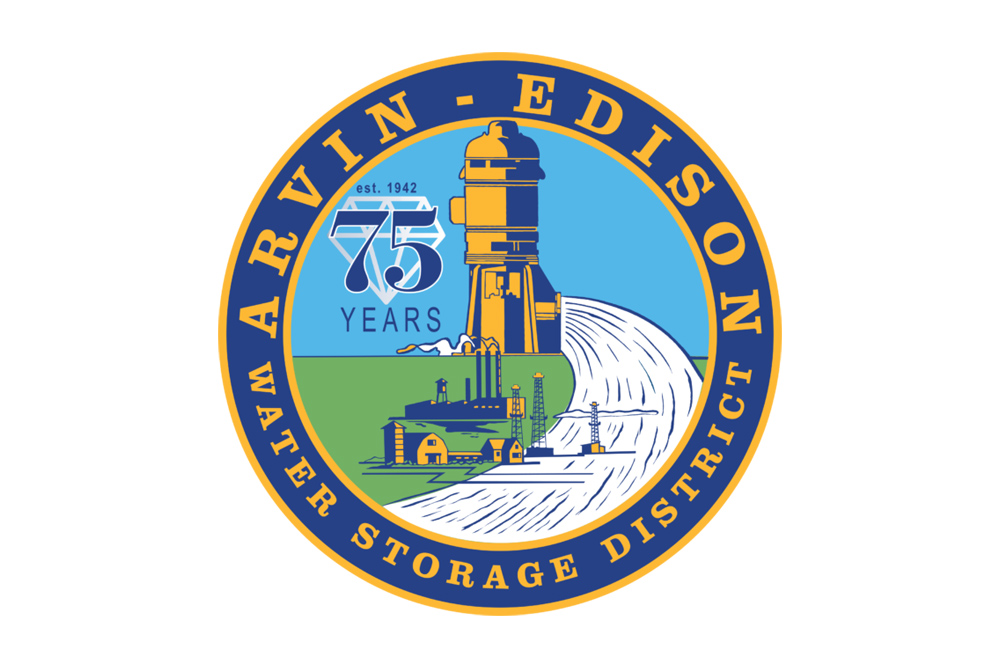On December 19, 2023, in Sacramento and virtually, the five-member State Water Resources Control Board held a meeting with an ambitious agenda. While the Board approved significant new regulations regarding reuse of potable water, making the national news, of particular interest to the Central Valley was an update on implementation of the Sustainable Groundwater Management Act or SGMA. The focus here was on six critically over-drafted subbasins whose revised groundwater sustainability plans (GSPs) had been found inadequate by the Department of Water Resources (DWR). They are, geographically from north to south, Delta-Mendota, Chowchilla, Kaweah, Tulare Lake, Tule and Kern County. The plans for each of these subbasins had been developed and revised by one or more local Groundwater Sustainability Agencies or GSAs.
over-drafted subbasins whose revised groundwater sustainability plans (GSPs) had been found inadequate by the Department of Water Resources (DWR). They are, geographically from north to south, Delta-Mendota, Chowchilla, Kaweah, Tulare Lake, Tule and Kern County. The plans for each of these subbasins had been developed and revised by one or more local Groundwater Sustainability Agencies or GSAs.
As required by SGMA, DWR determined the GSPs lacking and referred these basins to the State Water Board which will decide whether to move forward with state intervention. The first step here is for the State Board to consider whether these basins should be placed on probationary status, in effect putting the GSAs under state control to achieve groundwater sustainability. At this meeting, the State Board was not scheduled to take any action but did hear a staff presentation on a recommended schedule for potential probationary hearings. Also discussed were potential steps GSAs can take to exit state intervention and return to local control. The Board also received comments from 14-representatives of various interest groups reported below. Board chair E. Joaquin Esquivel led the meeting throughout.
Staff Report
State Board staffer Natalie Stork in a 20-minute presentation said that the DWR determination of inadequate plans requires that the State Board determine first if intervention is warranted. “This is where we are now,” she said.
The Board then is to hold a public hearing to determine if the GSA is to be put on probation, which means the Board and Board staff collect data on groundwater extraction and collect associated fees to cover these costs as required by SGMA. The GSAs have a year to address issues but if the plans are not fixed, the Board can take the next step after another public hearing to adopt an interim plan for the basin. According to Stork, all of these steps are at the Board’s discretion and GSAs can submit updated plans at any time. If in the Board’s determination, the plans are fixed, the GSAs can be moved out of state intervention and back to DWR’s oversight.
Stork then presented a slide reviewing how this process has begun for Tulare Lake. On October 12th, a staff report with deficiencies was released with a hearing notice sent to cities and counties and DWR. The next day, all known pumpers were mailed notifications. Two stakeholder meetings were held. A virtual meeting on November 3rd included 200 participants and one in-person meeting held on November 8th in Hanford attracted over 170 attendees. (See a report of this meeting in WaterWrights posted click here.) The public comment period closed on December 11th with 34 comments received. Staff will use all of this information to prepare a final report and a resolution for the Board’s consideration in March 2024. A hearing is set for April 16th, 2024, where the Board will consider probationary designation for the basin.
participants and one in-person meeting held on November 8th in Hanford attracted over 170 attendees. (See a report of this meeting in WaterWrights posted click here.) The public comment period closed on December 11th with 34 comments received. Staff will use all of this information to prepare a final report and a resolution for the Board’s consideration in March 2024. A hearing is set for April 16th, 2024, where the Board will consider probationary designation for the basin.
Proposed Hearing Schedule
Stork said much has been learned through this process and a revised schedule has been set for the other basins as follows:
Tulare Lake April 16, 2024
Tule September 2024
Kaweah November 2024
Kern County January 2025
Delta-Mendota lst quarter 2025
Chowchilla 2nd quarter 2025**
(**only if needed pending DWR board and staff review of a revised plan
The updated schedule for Tule calls for a release of deficiencies and notice to cities and counties in March 2024 along with notice to all known pumpers. Stakeholder meetings both virtual and in person will be held in April with the public comment period ending in May. The final report of deficiencies and a draft staff resolution for possible Board action will be posted in August with a hearing in September.
Stork said it was recognized that some feel the timeline to hearings is too long while others feel it is too short. In any event, she said that public engagement from any and all interested parties is welcomed throughout the process and is carefully considered in preparation of final reports and recommendations.
She continued saying that there have been comments asking whether the fees are appropriate. They were developed in 2017 and she said they are subject to change by the State Board. She said the current fee schedule for a GSA in probation consists of a $300 per well filing fee, a $40 / AF volumetric fee and a 25 percent late fee. She said the staff is doing an analysis and will come back to the Board with a recommendation.
Stork looked ahead to other basins under review that might be coming to the State Board. She said DWR will likely be issuing a finding soon on the Madera GSP and there are six others farther north with revised plans due by April 2024. DWR findings would be issued in late 2024 or early 2025. She said DWR is required to issue decisions on another 16 basins in January. If any of those plans are deemed incomplete, revisions would be due in July 2024 with four more due later. Some of these could be declared inadequate by the spring of 2025 thereby requiring State Board intervention.
others farther north with revised plans due by April 2024. DWR findings would be issued in late 2024 or early 2025. She said DWR is required to issue decisions on another 16 basins in January. If any of those plans are deemed incomplete, revisions would be due in July 2024 with four more due later. Some of these could be declared inadequate by the spring of 2025 thereby requiring State Board intervention.
How to Avoid Probation
Next, Stork presented information about what GSAs can do to return to DWR oversight. The first step is for the GSA to submit a revised plan which will then be reviewed by the State Board. It is recommended that for each deficiency, the GSA identify the issue noted in the previous GSP, the updated content in the revision and an explanation of how the change addresses the deficiency.
The Board staff will then review submitted plans. GSAs should plan on three months for one plan and an additional month for each additional plan for a basin. If there is not sufficient time before a scheduled hearing, then staff will only be able to perform a “cursory review, if any.” If substantial deficiencies appear unresolved, staff will recommend continuing with the hearing. On the other hand, if all deficiencies appear resolved, staff will recommend a delay so staff can complete a comprehensive review and receive public feedback. Stork cautioned that the submission of a new or revised plan does not guarantee cancellation of a hearing.
Possible Actions by State Board
The third step, Board action, could be if the plan is fixed, the hearing is cancelled or kept so the staff can publicly recommend ending state intervention, with any probationary basin determination rescinded. If the plan is not fixed, any scheduled hearings will be held, and probationary basin requirements will remain in place.
She emphasized, “We encourage all GSAs to continue and work to fix their plans.”
Continuing, she said that no doubt several GSAs will request a “good actor” exemption. She said to qualify, any area must have a GSA “that demonstrates compliance with the sustainability goal,” which means it is operated within its sustainable yield.
She concluded, pointing out that the staff has issued FAQs for GSAs and for pumpers. She said guidance will be coming soon on submitting revised plans. She also said that fees will be reconsidered soon.
2040 And Beyond
With that, Chair Esquivel thanked staff for the presentation, saying that the work had resulted in a more realistic schedule. He said he wants the Board to continue to promptly work with the affected GSAs so they can “hear, reflect and improve” their plans. He reminded the audience that state intervention can occur not only regarding plans but during implementation and even after 2040. He said, “We want to be as flexible as we can.” He continued saying he knows there is a lot of concern about what is happening, He said that GSAs are concerned that intervention can harm the ability of communities to work together to do the necessary work.
He then invited his fellow Board members to speak. Vice Chair Doreen D’Adamo, present online, asked for details about how a GSA could avoid a hearing and also asked about the “good actor exemption” creating pressure to divide GSAs, an undesirable result. There was further discussion about the exemption, but it was pointed out by staff that coordination among GSAs as shown in plans was always a crucial point, discouraging the formation of splinter groups. Chair Esquivel noted that everyone is before the Board because of a lack of adequate GSPs and the focus at this stage is to make them satisfactory.
Public Comment
With that, public comment was invited as Leadership Counsel representative Natalie Escobedo Garcia led off. She said her group strongly supports water demand reduction and strong domestic well mitigation programs. She asked that hearings be held as soon as possible since GSAs had already had three years to develop their plans.
Gail Delihant speaking for Western Growers Association said she was glad staff are looking at the fee issues. Growers already are paying to GSAs and for irrigated lands programs, along with what might be charged for probationary status. Chair Esquivel said the fees would be reconsidered but that SGMA requires the Board to assess fees.
Speaking for Clean Water Action, Micael Glackin supported probationary status for Tulare Lake and expressed concern about contaminants there polluting domestic wells and small water systems.
Tian Tran of the Community Water Center said that disadvantaged communities were most affected by domestic well problems and were often under represented in GSA leadership. She advocated that the State Board provide guidance to GSAs to insure engagement with members of these communities.
Deanna Jackson, executive director of the Tri-County Water Authority, said her organization has lands in both Tule and Tulare Lake Subbasins. She said she has concerns that probationary status may cause the loss of stakeholder support for demand reduction and domestic well mitigation programs.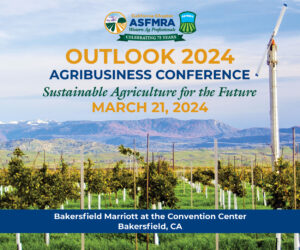
Cody Phillips, staff attorney for the California Coast Keepers Alliance, encouraged the Board to keep an eye on the issue of interconnected waters in the GSPs under review. He said lowered water levels can deplete habitats and consolidate pollutants.
From the California Farm Bureau, Alexandra Biering said she was glad to see more flexible scheduling around probationary hearings. She said her group has concerns about “scope creep,” going beyond what SGMA is, with added emphasis on human right to water, for example. She asked that the Board be mindful that the fees for probationary status could be imposed on areas that are already economically challenged.
Melissa Sparks-Kranz of the League of California Cities asked that city water suppliers be exempt from fees associated with probationary status. She said urban water use accounts for only 4.3 percent of water extracted from the Central Valley. She said that additional costs imposed on water authorities will impact urban water users. She said her group supports focus on fixing the GSPs.
As general manager of the Greater Kaweah GSA, Mark Larsen said he had three items to speak about. He said, “We are diligently working on revisions for the GSP to meet the standards” and that much good is happening on the ground. He said the GSA can relate to its growers who say, “Just tell me the rules and I’ll figure out how to make it work.” He said we need the guidelines for what’s acceptable. Regarding fees to be imposed by the State Board, he urged that they be collected by the GSA which has billing procedures already in place for landowners. This would be less expensive for the Board and would also reduce confusion. He invited the Board members and staff to come to his area to see plans in action.
standards” and that much good is happening on the ground. He said the GSA can relate to its growers who say, “Just tell me the rules and I’ll figure out how to make it work.” He said we need the guidelines for what’s acceptable. Regarding fees to be imposed by the State Board, he urged that they be collected by the GSA which has billing procedures already in place for landowners. This would be less expensive for the Board and would also reduce confusion. He invited the Board members and staff to come to his area to see plans in action.
Chair Esquivel emphasized that the Board is open to how fees are collected.
During public comment at the opening of the meeting, Aaron Fukuda of the Tulare Irrigation District had reported on successful work reducing demand, with landowners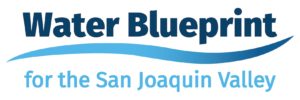 supporting reduced allocations and in a wet year and with groundwater levels rebounding 24 feet. Here he said work was being done to get the GSP revisions submitted. He said probation might reduce support from growers from the necessary work of the GSA but that he was ready to collaborate with staff to get the GSP updates.
supporting reduced allocations and in a wet year and with groundwater levels rebounding 24 feet. Here he said work was being done to get the GSP revisions submitted. He said probation might reduce support from growers from the necessary work of the GSA but that he was ready to collaborate with staff to get the GSP updates.
Jasmin Ramirez with Self Help Enterprises advocated for a “sustainable and robust” domestic well mitigation program. She said GSAs should include in their plans protections for drinking water quality as well. She too said that GSA boards should include two seats for members of disadvantaged communities of color and tribes.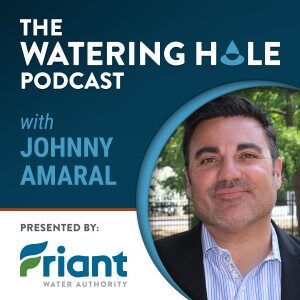
Speaking for the Tule Subbasin, David DeGroot said he appreciated the updates and schedules provided. He said his group is working diligently to submit revised plans. He said he appreciated the tours in his area from State Board members.
Ashley Walker of the Eastern Tule GSA within the Tule Subbasin said they are working to revise the GSP and collaborating with community organizations for domestic well mitigation. She strongly encouraged delay of the probationary hearing because revisions of the GSP are underway.
Soren Nelson of ACWA said that organization and its members played a significant role in creating SGMA. He said regarding fees, he asked that they be closely correlated with the Board’s costs. He said he appreciated the discussions of the “good actor” exemption.
Board Member Comment
With no further public comment, Chair Esquivel said he appreciated everyone’s participation and thanked staff for providing proper information for all concerned. He asked his Board colleagues for their comments. Board member Laurel Firestone thanked the GSAs for their work. She said the Board would be looking to the stakeholders in their regions to see what they think of your plans. She asked, “Will local stakeholders be supportive of your GSPs?” She said she was interested in the exemptions for small users and the idea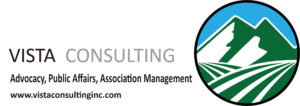 proposed by Larsen that the GSAs do the billing. She said that city water systems already have a lot of reporting to do and that the Board should look for ways to use that information. She said she hoped that state budget restraints would not interfere with Board travel to the regions.
proposed by Larsen that the GSAs do the billing. She said that city water systems already have a lot of reporting to do and that the Board should look for ways to use that information. She said she hoped that state budget restraints would not interfere with Board travel to the regions.
Vice Chair D’Adamo said she’s interested to see the fee issue sooner rather than later and she’s concerned they may be higher than they need to be. She said the GSAs might be the best way to collect them. She encouraged all GSAs to do what you can to improve those plans.
Board member Nichole Morgan thanked the staff for the information presented while member Sean Maguire said he appreciated that the staff is meeting with the affected GSAs. He said he hopes guidance from the staff will be available soon.
At 1:41 p.m. Chair Esquivel conclu ded this portion of the meeting and adjourned for a lunch break.
ded this portion of the meeting and adjourned for a lunch break.
Editor’s note: The complete video and audio recording of the meeting is available at youtube.com/user/BoardWebSupport or video.calepa.ca.gov.

DISCLAIMER OF RESPONSIBILITY; Waterwrights.net strives to provide its clients with the most complete, up-to-date, and accurate information available. Nevertheless, Waterwrights.net does not serve as a guarantor of the accuracy or completeness of the information provided, and specifically disclaims any and all responsibility for information that is not accurate, up-to-date, or complete. Waterwrights.net’s clients therefore rely on the accuracy, completeness and timeliness of information from Waterwrights.net entirely at their own risk. The opinions expressed in this report are those of the author and do not represent any advertisers or third parties.
ALL RIGHTS RESERVED. Copyright 2023 by WaterWrights.net




